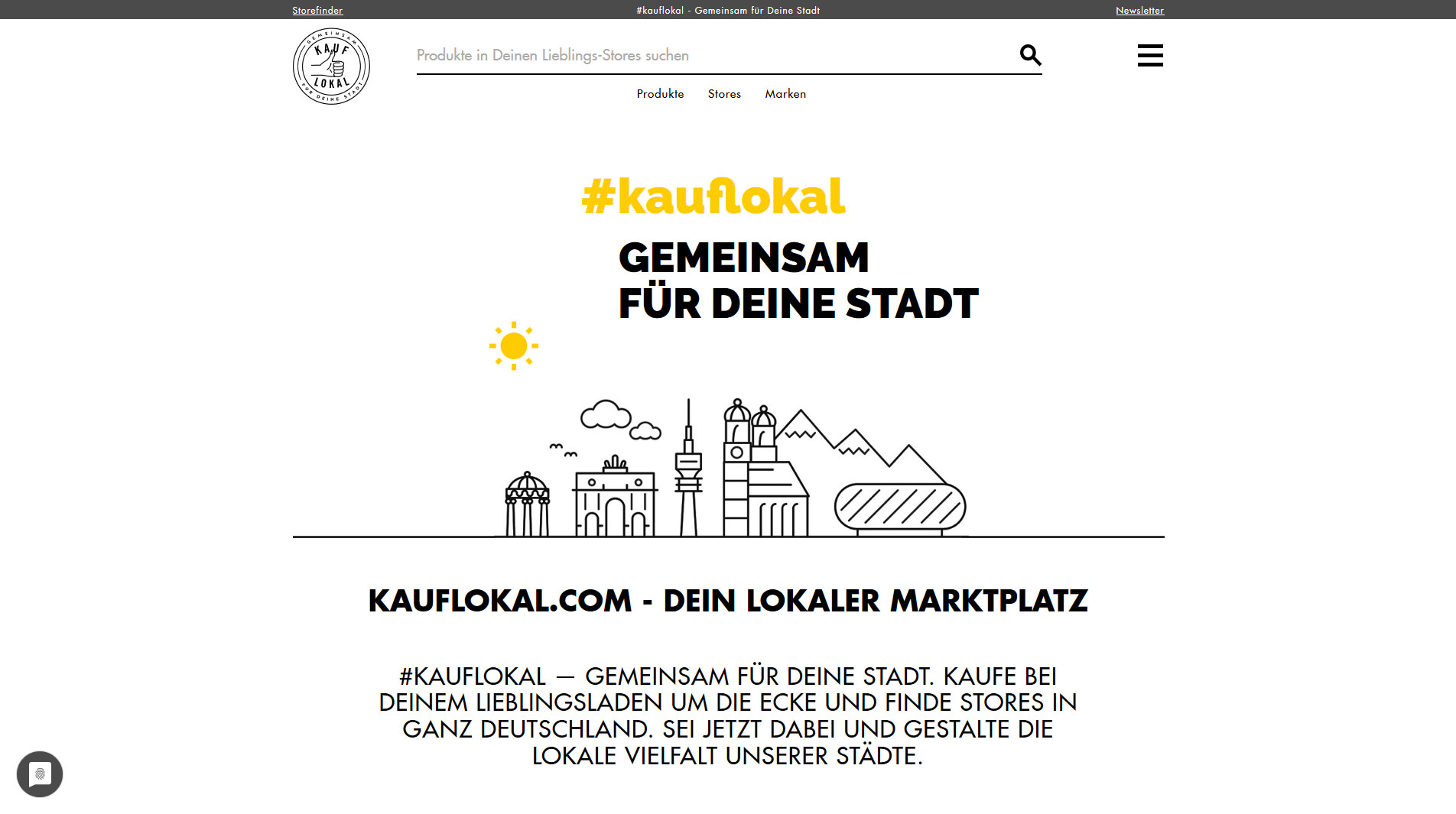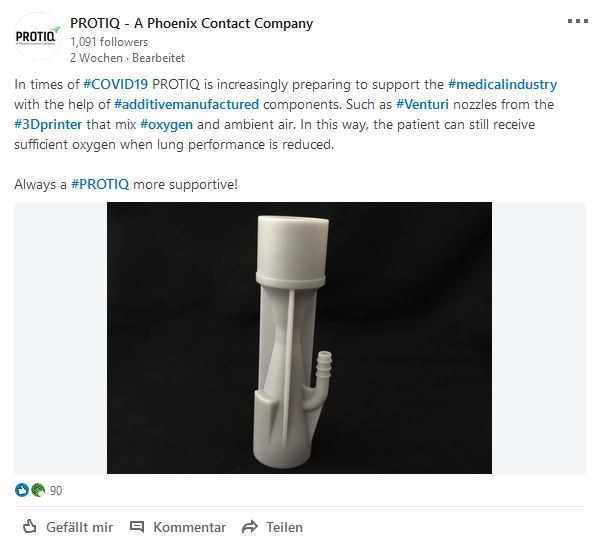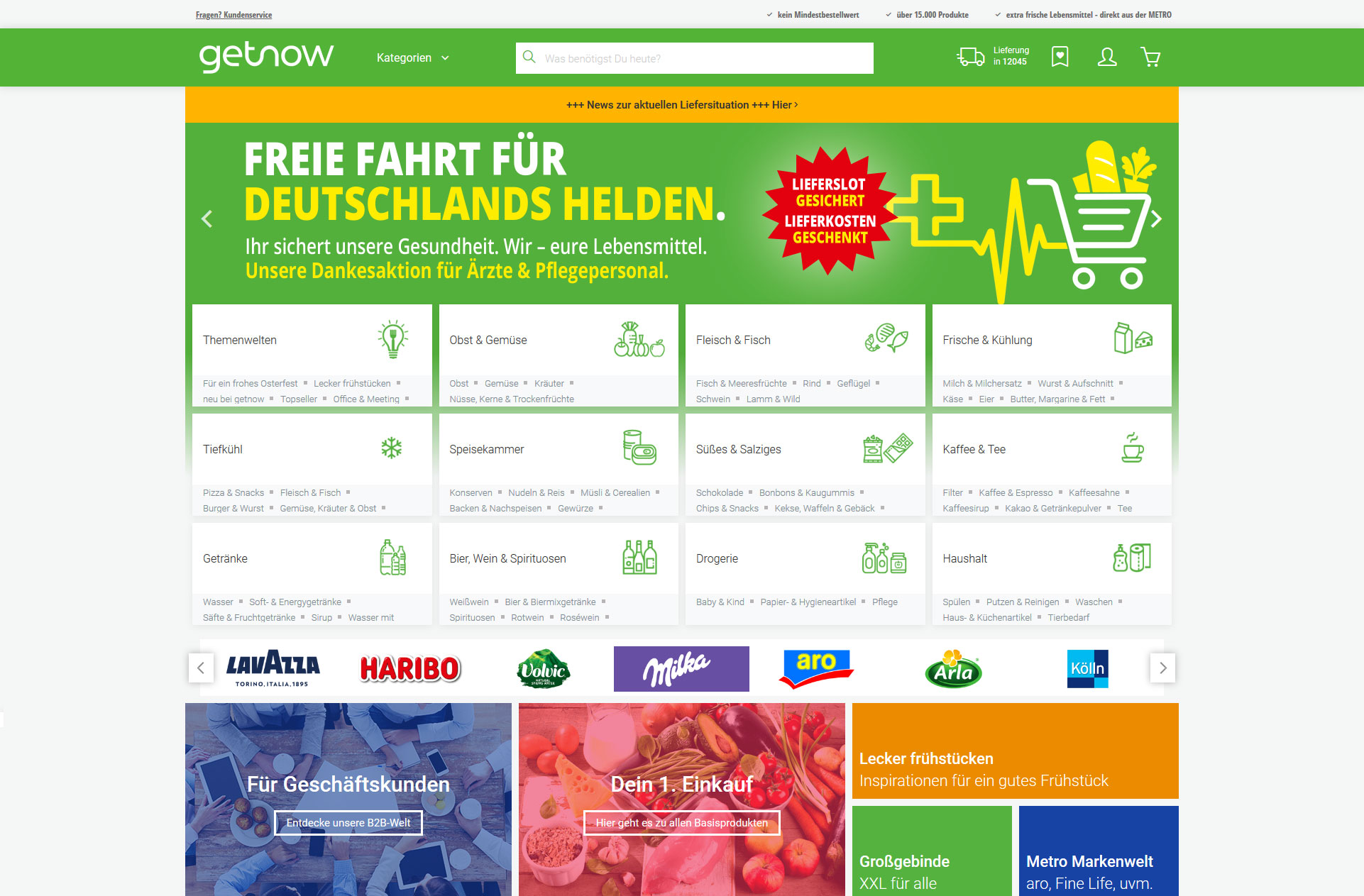9 great examples of how retail is dealing with the Corona crisis
Written by
Editorial TeamPublished on

The year 2020 is no ordinary one. For a long time to come, we will continue to tell our children – and our children will tell their children – about a year in which social and economic life was reduced to virtually zero. That has never happened before. And, of course, we all hope that we will soon return to something like “normality”.
Whenever the vaccine against COVID-19 is finally released, nothing will ever be the same again. “Normality” will definitely look different. Our habits of interaction will be different.
Probably none of us will ever again be as relaxed in public as we were before. The handshake, sign of recognition and mutual respect, has left its heyday behind. And the feeling of security in public spaces is a thing of the past.
These few weeks of isolation are already leaving their mark on our children, on ourselves and, above all, on the economy. Enterprises are at stake. Retail trade is facing nothing.
Self-employed people, small businesses and medium-sized companies are plagued by unprecedented concerns about their existence and that of their employees. This is dramatic without wanting to make things worse than they are.
The corona crisis releases new energy
Not everything will have been negative once the crisis is over. The wish is circulating on the Internet that people may move closer together, appreciate and support each other more than before. There are numerous small and large examples where this is already happening.
From a purely economic point of view, the crisis is threatening, but for many entrepreneurs it is also a motivation and necessity to look for a plan B now. Although the background of the Corona crisis is different, it creates what previously ambitious CEOs and increasingly sophisticated software and technologies have not been able to do.
It is now more than clear that the call for digitization was not a prophecy of doom. The corona pandemic that is occurring worldwide and the resulting shutdown of social and economic life is driving entrepreneurs into digitization. Or forces them to strive for the next level.
The crisis is not only a catastrophe, it is also an opportunity to move things forward now for which there were a thousand reasons against it before. Because now it is existential to digitize the business model.
We are experiencing that in many places in Germany trade is currently making up for lost time. Numerous examples, which are described below, prove that this is working out.
This let’s us hope that the economy will not be quite as battered as feared from this crisis.
Marketplaces are being implemented in record time and e-commerce platforms are being ramped up without much lead time. Some people are developing new, digital business ideas and bringing them online into people’s living rooms. There are almost no limits to creativity.
The local and digital marketplace around the corner

Example 1: Offer more sales opportunities to local dealers with their own shop
In the very south of the republic, OXID partner Norisk Group started the initiative kauflokal.com, together with other supporters. The aim is to establish such marketplaces in other cities in Germany as well.
The approach: to give retailers with their own shop more visibility via the marketplace as a digital shop window and to present their products to a large public.
A possible purchase is made directly on the participating retailer’s own shop. Kauflokal.com has the potential to bring more turnover to the troubled retail trade.
The marketplace gives the consumer the opportunity to remain loyal to the retailer around the corner without contact. At present 200 stores are part of the marketplace and 5.375.000 products are displayed there.

Example 2: Getting local dealers without a shop online quickly
A project of Komea Digital in Mecklenburg-Western Pomerania was a prime example. On the platform mv-handelt.de retailers, food producers, restaurants and sports clubs are invited to set up their own online shop.
The whole thing is free of charge for 6 months, without any subscription obligation and no special IT knowledge is needed to set up the shop. “Stay at home, shop locally” is the motto.
The offer already includes 15 local providers, 40 want to participate and the trend is rising.
Extraordinary projects that help people directly affected by COVID-19

Example 3: An association sets up a shop to support its members
On March 27th, the digital agency Studio B12 called OXID and asked if we would like to support the creation of a shop for the distribution of protective masks among the members of the “Bundesverband privater Anbieter sozialer Dienste e.V.” (Federal Association of private providers of social services).
Of course we wanted to and the project went live within three days thanks to the enormous commitment of our colleagues Alfons Martin and Florian Engelhardt. SysEleven took over the hosting.
“Thanks to your help, we will be able to start the urgently needed delivery of the first protective masks for the many thousands of care facilities and services with particularly vulnerable people in need of care and nursing staff this week”.
Bernd Tews, Managing Director, bpa.Bundesverband privater Anbieter sozialer Dienste e.V.
Examples 4 and 5: Switching production to the demand in the Corona crisis
From Burladingen came the news from Trigema that the production was now switched to protective masks.
The textile manufacturer now produces 100,000 protective masks per week and urgently needed protective clothing of all kinds, where T-shirts are usually made.
The demand is so huge that deliveries can only be made again from May onwards, although the factories are producing at full speed.
A similar approach was chosen by OXID customer Protiq, which operates a marketplace for industrial 3D printing.

Where otherwise in the B2B segment industrial parts are printed in series, or private customers can upload their desired object and have it produced, they are now increasingly printing urgently needed parts for ventilators and other medical accessories.
What are the beneficiaries of the crisis, e.g. the food trade?

Example 6: Supporting systemically relevant occupational groups
The food retailer getnow.com, which supplies customers in the cities of Berlin, Munich, Düsseldorf, Frankfurt, Essen, Cologne and Hanover with fresh food, would like to thank those who “keep the business running in Germany during the pandemic”.
The online supermarket provides doctors and nursing staff with food free of charge. In addition, those working under high pressure in system-relevant professions can choose a desired delivery date so that they can receive their delivery safely at home.
Example 7: Helping to avoid personal in-store shopping
The auction and teleshopping channel 1-2-3.tv has also reacted quickly. Normally fashion, watches, jewellery and much more are auctioned here. On 27th of March the supermarket@home was launched for the first time.
From six o’clock in the morning to two o’clock at night, supermarket items, drugstore offers and DIY products for the home could be auctioned off. The channel is thus taking account of the new shopping behaviour caused by the crisis, which is to give preference to buying food online.
Especially in the food retail sector, Corona could accelerate the change and mindset of people who have so far preferred to buy food directly in the store and personally for numerous reasons.
How do chain stores manage store closures?
Example 8: Push projects faster that were already in the starting blocks
Sport Förg is a sports retailer in Augsburg, which operates two large stores there. For several years now, he has been using an OXID eShop, which, however, has so far only functioned as a customer club and offered the possibility of buying vouchers.
Due to the current closure of the stationary shops, a solution had to be created to sell the products online. In just one week, the shop was further developed with the support of OXID partner FDI to offer parts of the product range.
Currently, special articles for home training, running, cycling and outdoor are offered. So especially articles that sports enthusiasts can use in the current situation.
Example 9: Drive on sight, stay positive and make the best of it
While food, sports and leisure goods suppliers, the games industry, the entertainment industry and others will benefit from the shutdown, the fashion industry is in a bad situation.
OXID customer and online retailer European Online Distribution (EOD) describes how a company that operates several online shops and is also a chain store with the Vivobarefoot brand is dealing with the crisis.
While the online business can partially absorb the losses, the franchisees of the Vivobarefoot stores are facing nothing.
https://www.oxid-esales.com/blog/flexibilitaet-im-handel-in-zeiten-des-corona-virus/
Conclusion
So, seeing all the negative aspects of the crisis, there are also good things happening. Many initiatives, commitment and disinterested support is being provided to help trade both online and offline.
Some of these will continue to exist and be of great benefit for a long time after the coronavirus is gone.
We too are making our contribution. We are involved in many of the actions described above because we are particularly concerned about online trading.
We are proud of our customers who do not let themselves be beaten. And of our partners, who are now pragmatically implementing fast solutions with customers. In addition, we have created our own help offers.
Take advantage of these and do not hesitate to contact us. We are open for questions, concrete assistance or exciting project ideas that you would like to implement.
https://www.oxid-esales.com/oxid-hilfsangebote-fuer-den-e-commerce/

Author: Nicole Lipphardt is Content Marketing Manager at OXID eSales AG. She loves good stories and is a passionate writer. She would have loved to be born digitally native and is trying to iron out this disadvantage in her daily social media work with enthusiasm. From many years of work at GE Healthcare IT and Testo AG she has a profound knowledge of B2B marketing, where she is an absolute all-rounder.


